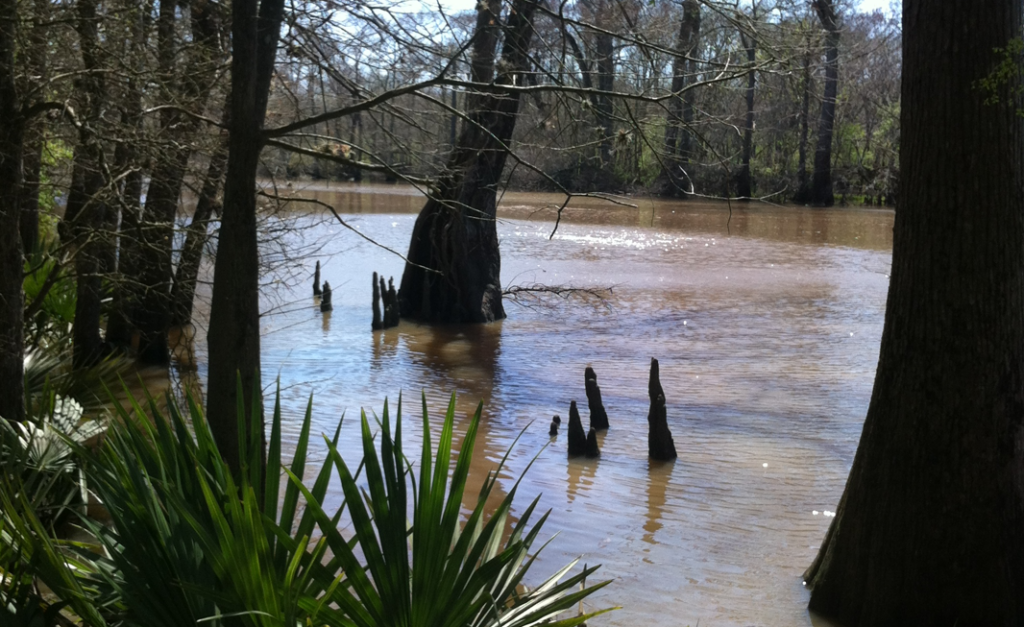A Texas Riparian and Stream Ecosystem Education Program for area residents interested in land and water stewardship in the San Bernard River Watershed will be May 23 in Angleton. The event is co-hosted by the Texas Water Resources Institute, TWRI, the Texas A&M AgriLife Extension Service and Texas Riparian Association.

The free program will be from 8 a.m.-4:30 p.m. The morning session will be at the AgriLife Extension office in Brazoria County, 21017 County Road 171. The afternoon session will include a walk and presentations along a nearby creek.
The program will include a lunchtime presentation; a catered lunch is offered for $15, or participants may bring their own lunch. All attendees must RSVP by May 16 online at https://tx.ag/Angleton2023 or by email to Alexander.Neal@ag.tamu.edu.
Riparian education equates to water quality improvement
Stakeholders recognize successful water quality improvement requires implementing a variety of management strategies. This workshop is an educational event supporting that effort in the San Bernard River Watershed, said John O’Connell, AgriLife Extension agriculture and natural resources agent for Brazoria County.
“Riparian education workshops motivate informed landowners and local residents to adopt and support practices to better manage riparian and stream ecosystems,” said Alexander Neal, TWRI program specialist, Bryan-College Station. “Not only are water quality and quantity directly benefitted by the proper management, protection and restoration of these critical areas, but so are the soundness of stream banks, fish communities and aquatic habitats.”
Neal said the workshop will focus on the nature and function of stream and riparian zones as well as the benefits and economic impacts from properly functioning riparian systems.
“Riparian areas – the green vegetated land areas adjacent to the bank of a stream, creek, bayou, river or lake – are unique and important ecosystems that provide many benefits including habitat and forage,” he said. “The workshop’s goal is for participants to better understand riparian and watershed processes, the benefits of healthy riparian areas and what resources are available to prevent degradation while improving water quality.”
On the agenda
Workshop presentations will be given by representatives of TWRI, the U.S. Department of Agriculture’s Natural Resources Conservation Service, AgriLife Extension, the Texas Parks and Wildlife Department, the Texas A&M Forest Service and the Texas Riparian Association.
Ricky Linex, retired Natural Resources Conservation Service wildlife biologist, said participants will receive a certificate of completion and appropriate continuing education unit certificates at the conclusion of the training.
The workshop offers many continuing education units, including three units — two general and one integrated pest management — for Texas Department of Agriculture pesticide license holders. Foresters and professional loggers can receive six hours from the Texas Forestry Association, six hours from the Society of American Foresters, and eight hours from the International Society of Arboriculture. It offers seven credits from the Texas Floodplain Management Association, seven hours for certified crop advisers, seven hours from the Texas Board of Professional Land Surveying and six hours for Texas Nutrient Management Planning specialists. The program may also be used for continuing education units for professional engineers.
The riparian education program is managed by the Texas Water Resources Institute, part of Texas A&M AgriLife Research, AgriLife Extension and the College of Agriculture and Life Sciences at Texas A&M University.
Neal said they are able to offer the workshop without cost thanks to program funding provided through a Clean Water Act nonpoint source grant from the Texas State Soil and Water Conservation Board and the U.S. Environmental Protection Agency.
For more information, contact Neal or visit texasriparian.org or their Facebook page.
-30-
Story written by Leslie Lee, Texas Water Resources Institute


